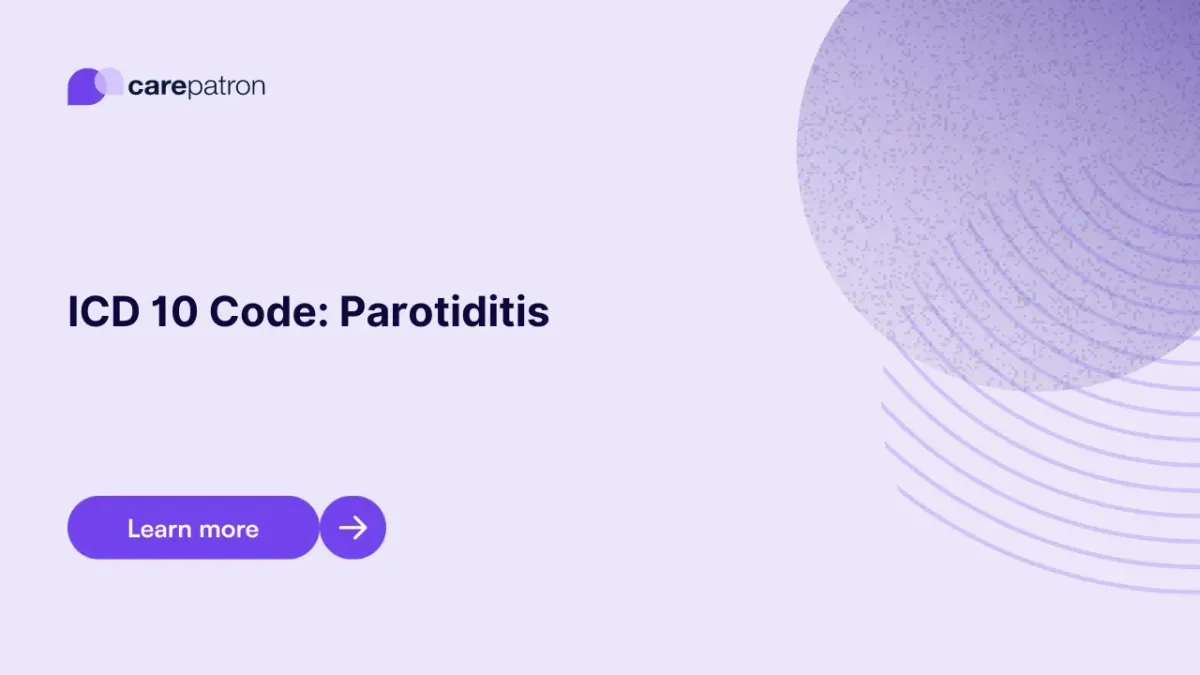
Parotiditis ICD-10-CM Codes
Learn billable Parotiditis ICD-10-CM codes for salivary gland inflammation, including acute, chronic, and recurrent sialoadenitis diagnosis options.
Use Code
Commonly asked questions
Use a Parotiditis ICD-10-CM code when a patient is diagnosed with inflammation, infection, or swelling of the parotid gland or related salivary glands. Accurate coding depends on the documented cause (e.g., viral, bacterial, chronic) and symptom presentation from the patient history.
Yes, Parotiditis ICD-10 codes such as K11.20, K11.21, K11.22, and K11.23 are all billable diagnosis codes. However, using the most specific code available is essential to avoid claim rejections and ensure proper reimbursement.
Treatment may include antibiotics, anti-inflammatory medication, and supportive care like hydration and warm compresses to reduce gland swelling. In chronic or recurrent cases, imaging and possible surgical intervention may be needed depending on the underlying cause.
EHR and practice management software
Get started for free
*No credit card required
Free
$0/usd
Unlimited clients
Telehealth
1GB of storage
Client portal text
Automated billing and online payments
